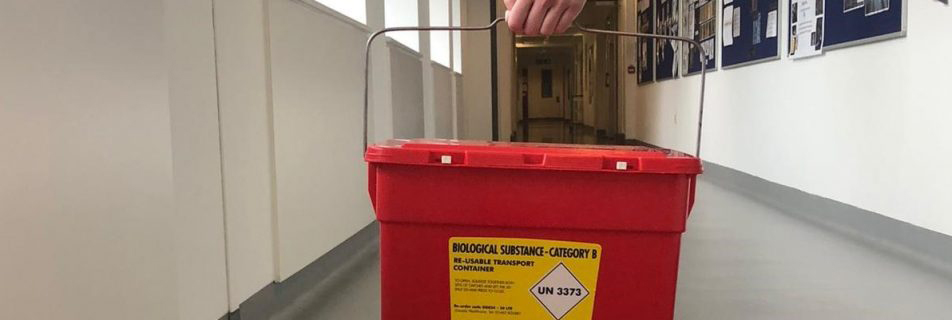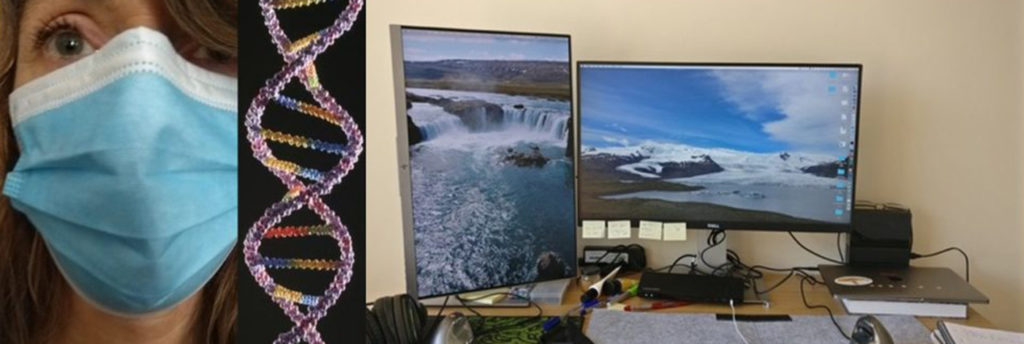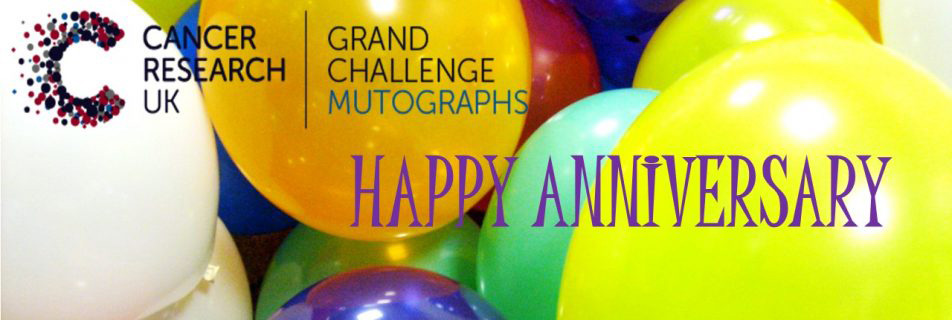HAPPY ANNIVERSARY
On the first of May Mutographs celebrated its third anniversary.
The occasion has traditionally been marked by teams getting together for lunch or dinner and a few drinks. This time it was a different celebration, all the teams got together online and everyone provided their own drinks. The European teams had beer and wine while the Californian contingency had coffee and tea as it was the morning for them. Like any party, people from around the world kept joining and leaving throughout, sharing the moment and their thoughts.
There was a reflection on past achievements of the project, so much has been accomplished giving important insights into cancer. One example is the contribution to our understanding of oesophageal cancer and the benefits of quitting smoking.
But mainly the conversation revolved around the present and its challenges. We talked about having the children at home, splitting time between childcare, schooling and working. The post-docs and students talked about not having been able to go home and how not having a garden made lockdown so much more difficult. Rebekah Beck, from Kings College London commented that her place has skylight windows, which are nice on sunny days but when the weather is grey make the mood a bit more sombre. While California-based Allan Balmain appreciated his confinement location, as it has a magnificent view of the Bay and a lovely veranda to have coffee in the morning.
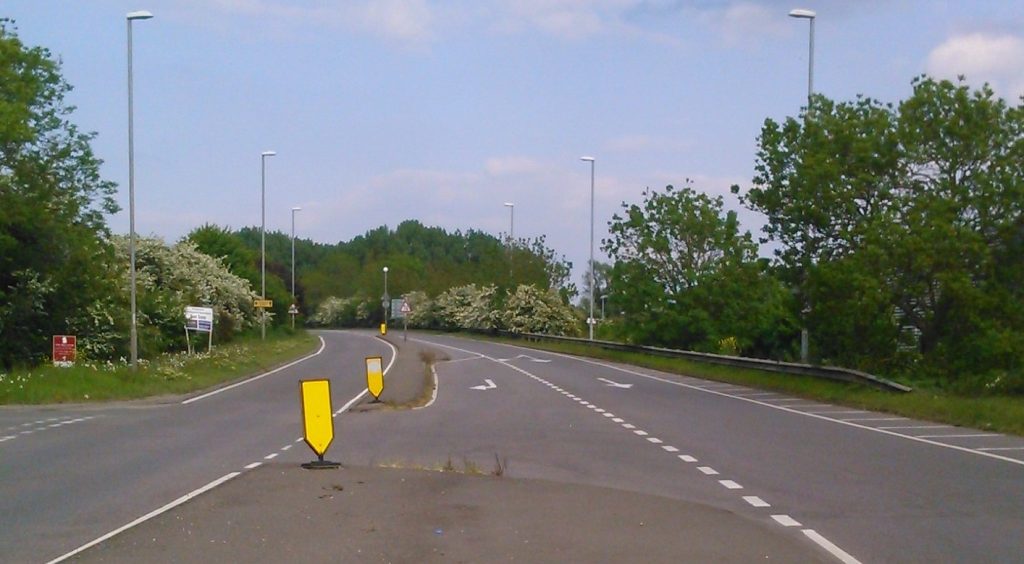
Roads are empty as the isolation period continues and we reflect on our work and on the future. Photo credit: Alena Pance.
Mutographs Patient Advocate Maggie Blanks talked about the impact the pandemic is having on the income of the charity she leads, as many fundraising events are having to be cancelled. How this will affect the charity’s funding of research in the immediate future is also firmly on her mind. PhD student Ellie Dunstone talked about the effect on careers, as her own first year viva was to take place online. She thought that as we are all at home it would be easier to find availability of the examiners. With the lab out of the picture, there is plenty of time to write dissertations but no chance to squeeze in crucial experiments at the last minute. Wellcome Sanger Institute’s Director and leader of the Mutographs project Mike Stratton, spoke about the ongoing project at the Sanger Institute to sequence COVID-19 samples and how the numbers going through the pipeline are rapidly increasing as part of the national effort to gather information about the virus and understand the spread of the infection.
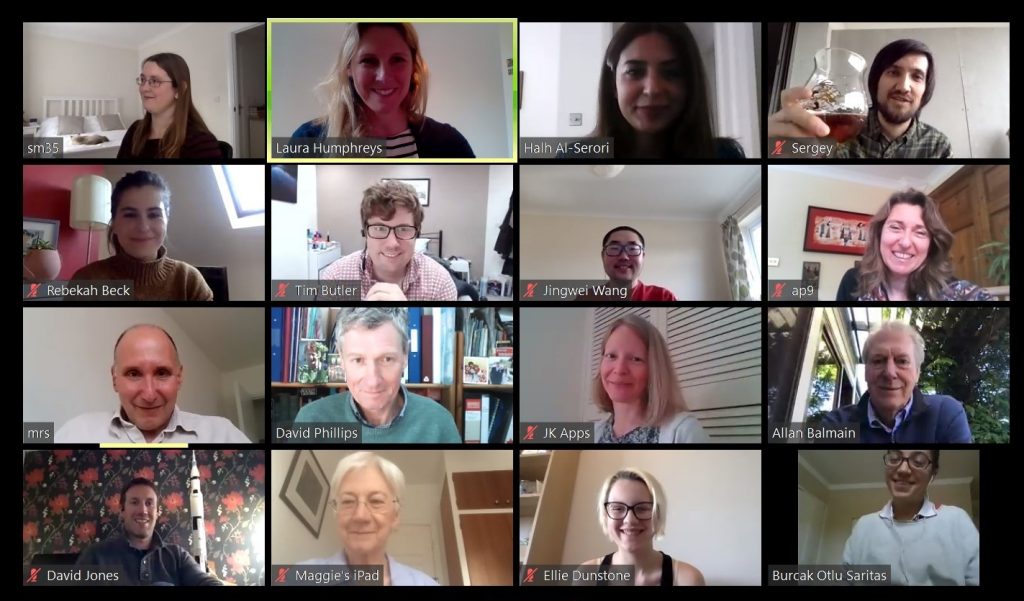
Very nice party to mark the occasion, more international than it would have been in person. Phot credit: Laura Humphreys.
And of course we talked about the future. The French team’s Sergey Senkin confirmed that France is preparing to ease restrictions with a phased back to school for children and people slowly going back to their activities. This brought an interesting discussion around the very low infection rate amongst children and how that would make a return to school feasible. According to Allan, California is also preparing to ease some of the restrictions though people’s reaction is varied. In general people are cautious, not quite sure whether the whole pandemic is yet over while others, fed up with being locked up at home, are ready to embrace freedom. Among the UK teams, we shared overall feelings of uncertainty. It seems we are at the peak of infection with numbers of cases starting to decline slightly and there is talk about changes in the near future but no official guidelines yet.
But the common question is how to get back to normal? It is essential that children go back to school, otherwise any form of normality would not possible. But even when that happens how do we organise a come back to work with the guidelines of social distancing? The Sanger Institute for example is quite isolated and many people use the Genome Campus buses to get to work so this will be the first hurdle. How do we keep the recommended distance between people in open plan offices and busy labs? While we gather ourselves and think how to resolve the logistical issues, we continue to work from home maintaining our efforts to drive the Mutographs project forwards in order to understand preventable causes of cancer.

A message of hope and good wishes for the future. Photo Credit: Estelle Chanudet.
The French tradition of the ‘1st of May lily of the valley’ was shared by Estelle Chanudet from IARC with the international team to bring hope, and sunshine after the rain to everyone.

